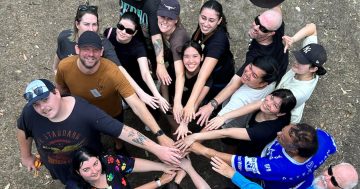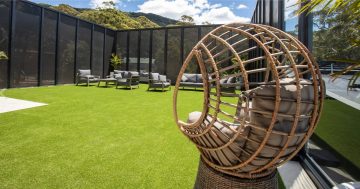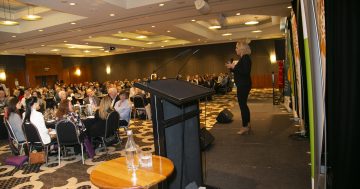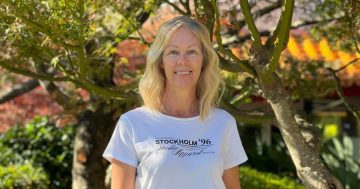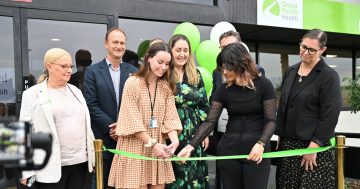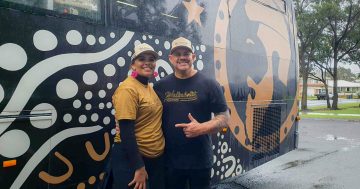
Recovery Camp is an award-winning provider of life-changing mental health programs. Photos: University of Wollongong.
When Professor Lorna Moxham from the University of Wollongong’s Faculty of Science, Medicine and Health first had an idea for a mental health camp for both students and people struggling with mental health issues, everyone said the project was raising too many red flags.
“The idea for Recovery Camp emerged from the need for immersive, positive clinical experiences for mental health nurses in a time when traditional placements fell short,” Prof Moxham said.
“But putting people with mental illness and nursing students learning how to work with people with mental illness together, somewhere in wilderness, felt risky, and I wasn’t even sure it was going to work. But there were no other viable options. So we needed to try to be able to know for sure.”
So that’s how, a decade ago, Recovery Camp was born. It started as an experiment, aiming to secure clinical placements for just 20 UOW students of mental health nursing.
Professor Moxham and her team quickly realised the profound impact the camp had on both students and participants.
“The transformative power of this program exceeded our expectations. By stepping out of traditional healthcare environments, we created a space for genuine conversations and healing to take place,” she said.
Over the years, the program expanded, incorporating interdisciplinary research, pedagogical evaluations and environmental considerations and merging it with a solid seed investment from UOW’s business incubator, iAccelerate.
Today, Recovery Camp is an innovative five-day mental health camp where students on clinical placements and people living with mental illness come together, sharing knowledge and experiences while engaging in therapeutic and recreational activities like craft and rock climbing.
Dr Christopher Patterson is the co-founder and co-director of Recovery Camp. The former Nurse of the Year (2019) is a registered nurse with specialist qualifications in mental health.
For Dr Patterson, the uniqueness of Recovery Camp lies in its ability to provide a setting that empowers patients and offers valuable experience to nursing students.
“The recreational activities are just a means to encourage conversation and connection and allow the students to learn from people’s lived experience,” said Dr Patterson, a senior lecturer in UOW’s School of Nursing.
“Nurses need experience of mental health outside of hospital settings. Lots of students go into acute wards and get a very singular lesson of what mental health is.
“Recovery Camp is a unique program addressing stigma and prejudice surrounding mental illness. Students come away with a better understanding of mental illness and higher clinical confidence and competence.”
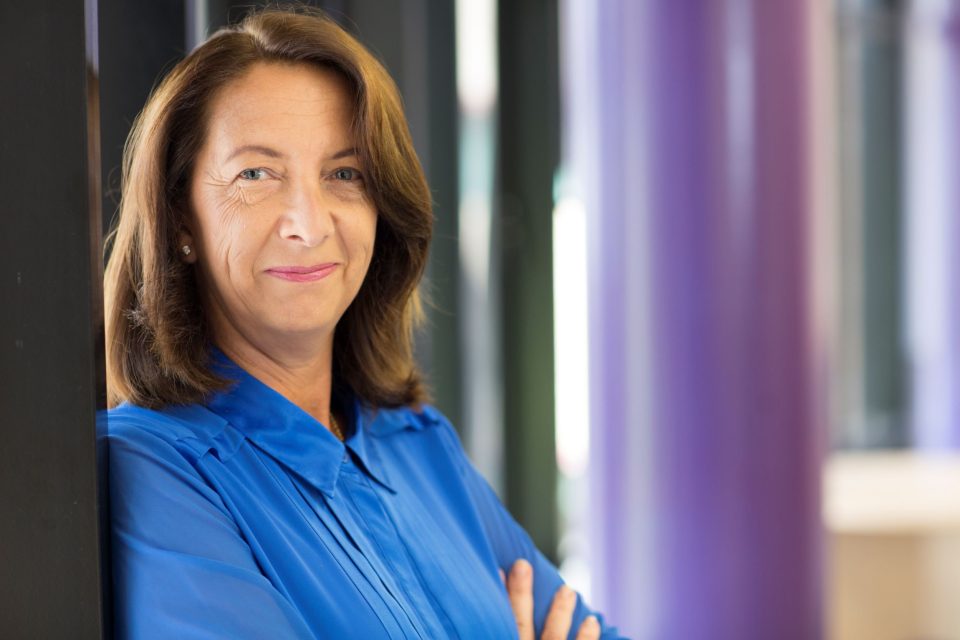

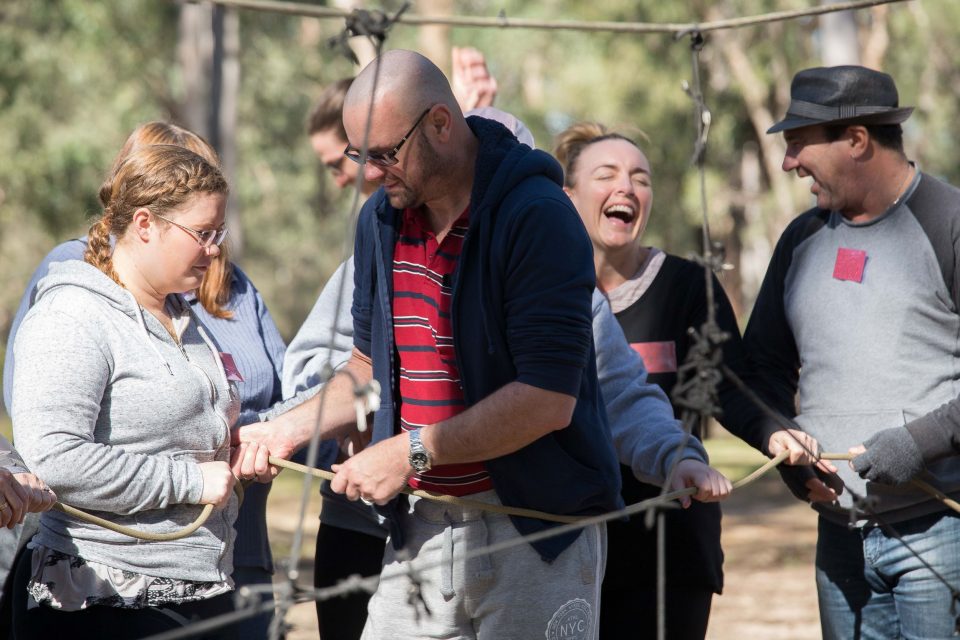

Camp Yarramundi in NSW’s Hawkesbury Valley was home to the first Recovery Camp in 2013. And while the camp continues there to this day, it has also expanded to Victoria and Queensland.
“This is our 10th year of operation and in that time Recovery Camp has provided over 1390 health students with over 111,000 hours of mental health clinical experience placement,” Dr Patterson said.
“It has also provided those students with an invaluable, positive experience of working with consumers with serious mental health conditions.
“There is a real need right now to address mental health workforce shortages and improve mental health care nationally and positive clinical placements are seen as a way to do it.
“So, it’s really encouraging for us that there are that many health professionals who have come to Recovery Camp and are out, and we think, are working in better ways.”
Recovery Camp has also had a profound impact on the wellbeing and recovery experience of people with lived experience of mental illness, with more than 900 people attending the camp for their own mental health recovery over the past decade.
Dr Patterson said there were many individual stories of transformation from the camp – from students, health professionals and people with lived experience.
One person who remains clearly in his memory is Kaylene, a Dapto grandmother, who attended the first camp in 2013 and has attended most since that time.
Kaylene, who has for more than 30 years lived with bi-polar and depression, has openly discussed that if it wasn’t for the community and connections she developed at camp, she would most likely have taken her own life.
She went through many years of misdiagnosis, but she is now able to manage her condition through medication and exercise.
“The program is a powerful opportunity for people with mental illness to be seen as people, experts and educators, rather than patients,” Dr Patterson said.
“This is why we do what we do at Recovery Camp. It is because it makes a difference. Recovery Camp positively impacts all its participants. We are looking forward to the next 10 years.”
Visit the Recovery Camp website for more information.
This story, written by Kate Mayhew and Alex Reszelska, first appeared in UOW’s The Stand magazine.
Anyone experiencing distress can seek immediate advice and support through Lifeline (13 11 14), Kids Helpline (1800 55 1800), or the digital mental health gateway, Head to Health.
If you are concerned about suicide, living with someone considering suicide, or bereaved by suicide, the Suicide Call Back Service is available at 1300 659 467.









